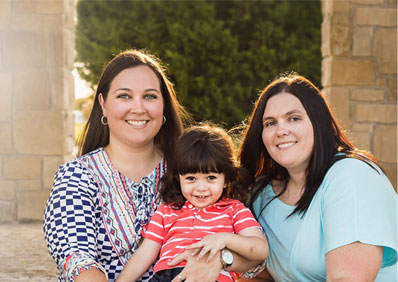On average the home study process takes three to four months to complete. In general, the following information is included in the final home study report:
- Significant people in the lives of the applicants
- Marriage and family relationships
- Motivation to adopt
- Expectations for the child
- Feelings about infertility (if this is an issue)
- Parenting and integration of the child into the family
- Family environment
- Physical and health history of the applicants
- Education, employment, and finances, including insurance coverage and child care plans if needed
- References and criminal background clearances
- Summary and social worker's recommendation
- Personal and family background, including upbringing, siblings, key events, and what was learned from them
Individuals who seek to adopt may face the entire process with tender egos and mounting anxiety that they will not be "approved." Armed with accurate information, however, prospective parents can face the home study experience with confidence and the excitement that should accompany the prospect of welcoming a child into the family.
There is no set format that adoption agencies use to conduct home studies. They must follow the general regulations of your state, but they have the freedom to develop their own application packet, policies, and procedures within those regulations. Some agencies will have prospective parents attend one or several group orientation sessions or a series of training classes before they complete an application. Others will have their social worker start by meeting with family members individually and then ask that they attend educational meetings later on. Usually agency staff members are glad to answer any questions and guide applicants through the process.
The home study itself is a written report of the findings of the social worker who has met with the applicants on several occasions, both individually and together, usually at the social worker's office. At least one meeting will occur in the applicant's home. If there are other people living in the home, they also will be interviewed by the social worker.
Preparing for a home study
Everyone gets anxious about the home study - it’s only natural. After all, it is a way of determining whether or not your home can provide a safe, stable, and loving environment for a child. With that said, if you are properly prepared and know what to expect, a home study really isn’t all that bad, and may even be enjoyable! While adoption home studies are mandated by law, there is no law stating how they should be conducted. Each home study varies from state to state and agency to agency. Despite the differences, most home studies contain many of the same elements. Here are some things you can expect:
Divide and Conquer
If you’re part of a couple, be prepared to spend most of the home study together, but also portions of it apart. Some agencies like to interview couples separately for many reasons, but mainly to make sure they are both on board with the adoption.
Get Personal
This is a biggie. During your home study, be prepared to be asked some very personal questions. Aside from the basic questions about your job, background, and education, more in-depth questions will arise, such as inquiries about your financial status and family background, your relationship with your partner, how you were disciplined as a child, and how you interact with your parents and siblings today.
The Home Visit
It’s no doubt that the home visit will probably be the most stressful part of your adoption home study, but don’t worry too much. The good part about the home visit is that it is scheduled. Additionally, you won’t be judged on superficiality. While you want your home to be in presentable condition, don’t stress yourself out by panicking over every speck of dust or crooked picture frame. Your social worker is looking to determine how a child will live there, if there is enough room, and most importantly, if it is safe.
Ask Questions
When sitting down with your social worker, don’t forget that you are interviewing them just as much as they are interviewing you. Instead of focusing on what you are going to say in response to their questions and that alone, make sure you ask your own questions, too. It’s a thorough process, and you want to make sure you absorb as much information as possible.

